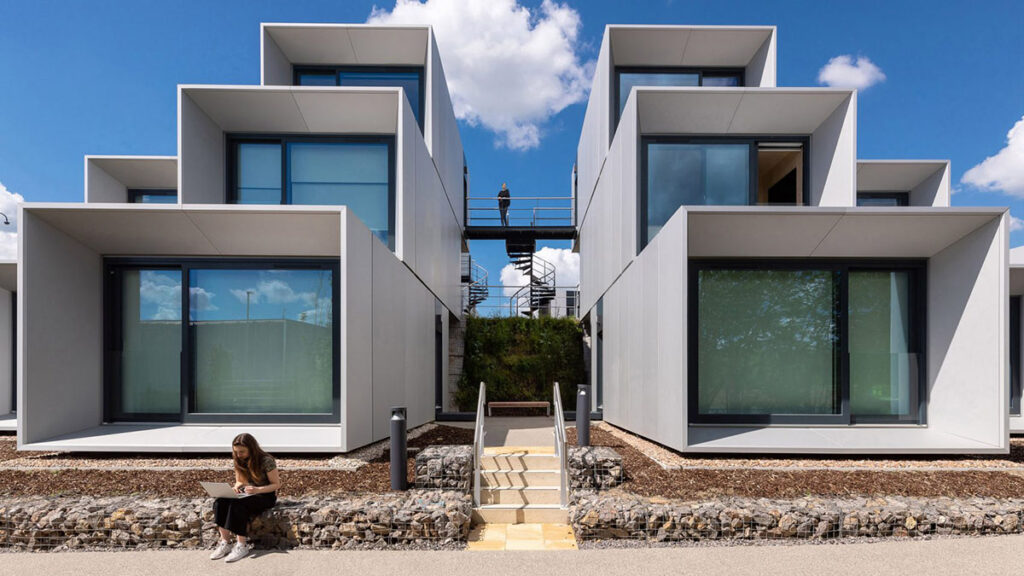
Modular construction project management: Key Aspects and Benefits
In recent years, modular construction project management has become a vital part of the construction industry, offering innovative solutions and efficiency that traditional methods often lack. As more home enthusiasts turn to this modern approach, understanding its core principles and advantages becomes essential. This article delves into the intricacies of managing modular construction projects, offering insights into why it stands out in today’s construction landscape.

Understanding Modular Construction
Modular construction involves creating building sections, or modules, in a factory-controlled environment before transporting them to the final site for assembly. This method offers precision and quality control, reducing waste and construction time. For those interested in minimalist lifestyles, modular homes can be a perfect fit, as discussed in this article about minimalist modular homes.
The Role of Project Management in Modular Construction
Effective project management is crucial in ensuring the success of modular construction. It involves planning, coordination, and execution, all tailored to the unique demands of modular building. Unlike traditional construction, modular projects require synchronization between factory production and on-site assembly, which makes skilled project management indispensable.
Benefits of Modular Construction Project Management
One of the main advantages is the reduction in construction time. With modules built simultaneously with site preparation, projects can be completed much faster than conventional methods. Additionally, the controlled environment in factories enhances quality control, leading to more robust and durable structures.
Cost Efficiency
Cost efficiency is another benefit. By minimizing waste and reducing labor costs, modular construction often proves to be more economical. This efficiency opens doors for more sustainable and affordable housing options, which is vital as we explore the intersection of technology and modular design in this related article.
Challenges in Modular Construction Project Management
Despite its advantages, modular construction is not without challenges. Logistics and transportation of modules to the site can be complex and require meticulous planning. Moreover, integrating modular designs with existing structures or landscapes can pose difficulties, especially in areas with strict zoning regulations.
Overcoming Challenges
To overcome these challenges, thorough planning and collaboration with local authorities and suppliers are necessary. By understanding the cultural perceptions of modular homes, as explored here, project managers can better navigate regulatory hurdles and community acceptance.
Future of Modular Construction
The future of modular construction looks promising, with advancements in technology and increasing demand for sustainable building solutions. As more people consider retirement in modular homes, the need for skilled project management will only grow, as highlighted in this article on retiring in modular homes.
Technological Advancements
Technological advancements continue to drive the evolution of modular construction, making it more adaptable and efficient. Innovations such as 3D printing and smart home technology are being integrated into modular designs, further enhancing their appeal and functionality.
Environmental Impact
Modular construction also offers significant environmental benefits. By reducing waste and utilizing sustainable materials, it contributes to a more eco-friendly construction process. This aspect is particularly appealing to those looking to reduce their carbon footprint.
Preparing for a Modular Home
For home enthusiasts, preparing your land for a modular home is a crucial step in the process. This involves site evaluation, ensuring accessibility for module delivery, and compliance with local regulations, as detailed in this guide on land preparation.
Conclusion
In conclusion, modular construction project management is revolutionizing the way homes are built, offering numerous benefits in terms of efficiency, cost, and sustainability. As the industry continues to grow and evolve, it will play a vital role in addressing modern housing needs.

FAQs
What is modular construction project management?
It involves overseeing the creation of building sections in a factory and their assembly on-site, ensuring quality and efficiency.
How does modular construction save time?
By building modules simultaneously with site preparation, projects can be completed faster than traditional construction methods.
What are the environmental benefits of modular construction?
It reduces waste, uses sustainable materials, and minimizes the carbon footprint of the construction process. For more information on modular homes, visit Architectural Digest.
This article contains affiliate links. We may earn a commission at no extra cost to you.